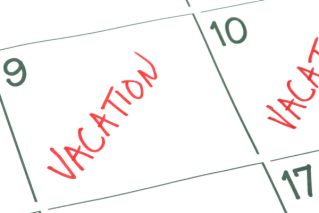
"Weave in tasks that you enjoy with those that are harder to complete..."
When starting a new task, be realistic with yourself about how long something will take for you to do. Factor in any competing professional or personal priorities when determining your time estimates. Envisioning larger projects as the sum of smaller, more manageable pieces will enable you to better estimate the effort required and define what success looks like, as well as establish items to cross off your to-do list each day. This can also help you identify any existing content that could be used as a starting point or where you may want to reach out to a coworker for any resources that they have to avoid reinventing the wheel.
Weave in tasks that you enjoy with those that are harder to complete, and then give your full attention to the tasks that you’ve chosen to focus on. Grouping tasks together that require a similar skill set also helps to maintain momentum.
Know your end goal for a task and stop working once you have achieved it. It’s tempting to want to deliver 110% on everything, but that is not always possible or even necessary. To sustain productivity over time, it’s important to respect your own boundaries. If you need to call it quits on a task, come back to it later when you don’t feel as overwhelmed.

"That advice should have been 'follow your heart'."
In today's fast-paced world, maximizing productivity is essential for success, but it's easy to feel overwhelmed by the sheer volume of tasks and responsibilities. To navigate this challenge effectively, it's crucial to adopt strategies that balance efficiency with mental well-being. The focus must be on increasing productivity per work hour, not extending the work hours.
The key lies in prioritization. By utilizing tools like the Eisenhower Matrix, individuals can categorize tasks based on their urgency and importance, allowing them to focus on what truly matters without getting bogged down by trivial distractions. This approach empowers individuals to tackle critical tasks head-on while allocating time for strategic planning and long-term goals.
Furthermore, practicing mindfulness and setting boundaries are vital components of productivity. Taking regular breaks, practicing deep breathing exercises, and establishing designated workspaces away from distractions help maintain focus and prevent burnout. Finding a mentor or coach could also help guide through the process.
Ultimately, maximizing productivity without becoming overwhelmed requires a holistic approach that integrates effective time management, prioritization, and self-care practices. By cultivating a healthy work-life balance, individuals can sustain high levels of productivity in the long-term without sacrificing their overall well-being.

"... Set a list of things to do and work on them in series, not in parallel...”
The old adage is “Work smarter, not harder.” But nobody really tells you what “smarter” means. To me it means “not letting productivity leak away.”
Avoid Multitasking. In college, I thought I could listen to music while I studied. Today, I remember all the words to Yellow Submarine, but I don’t remember any linear algebra. It takes time to mentally ramp one topic down and ramp the next one up. Set a list of things to do and work on them in series, not in parallel, and avoid distractions such as your phone, e-mail or cat videos.
Focus. Another way to say, “Avoid multitasking.” Many of us have had the “flow” experience where time passes virtually unnoticed because of our engagement in a task. Flow is very productive.
Prioritization. President Eisenhower divided things into Important/Not Important and Urgent/Not Urgent. Important/Urgent comes first. Important/Not Urgent comes second. Try to reschedule or delegate Urgent/Not important. Not Important/Not Urgent speaks for itself.
Time Management. OK, maybe another way to say “Prioritization.” Plan your work in advance. Set goals for accomplishment. Be ahead of deadlines if possible, to allow for the unexpected. Build in adequate breaks. Reward yourself for success.
Task Triage: Huge tasks breed procrastination. Break big tasks into smaller steps with a number of small successes along the way.
This article has been edited for length and clarity. The opinions expressed in this article are the author's own and do not necessarily reflect the view of their employer or the American Chemical Society.
ACS Career Consultants are experts and leaders working in the field of chemistry who have volunteered to support other ACS members’ career development through one-on-one career counselling. They can stimulate your thinking, ask important career planning questions to help clarify goals, provide encouragement, teach strategies for making meaningful career decisions, and aid you in your job search. Connect with an ACS Career Consultant today!










